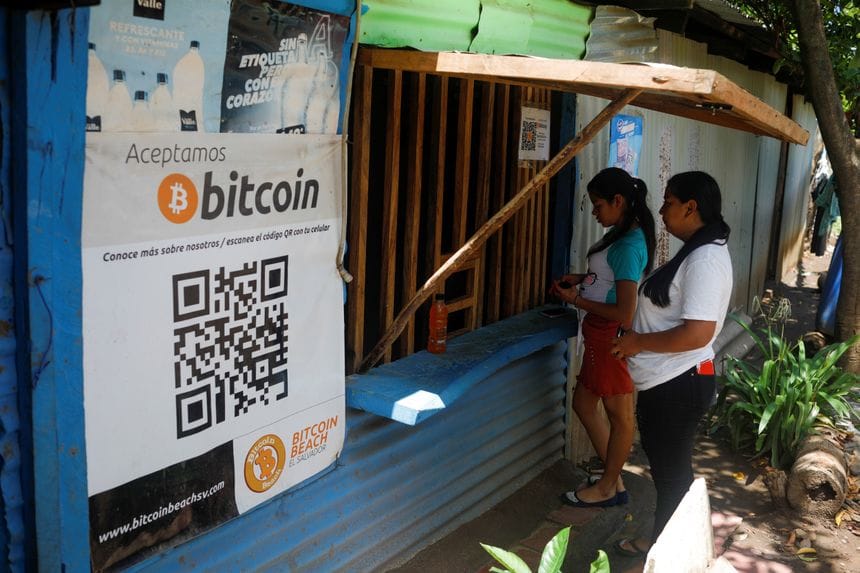The Most and Least Crypto-Friendly Countries in the World

The global landscape for cryptocurrency is diverse and rapidly evolving. As the digital asset sector grows, so too does the regulatory environment, which varies significantly from one jurisdiction to another. Some countries have established clear and welcoming frameworks for crypto businesses, while others maintain more restrictive or outright hostile policies. This article provides a detailed analysis of the most and least crypto-friendly countries around the world, explores the reasons behind these contrasting approaches, and offers insights into the future trajectory of crypto regulation.
Defining Crypto-Friendliness: A Regulatory Perspective
A crypto-friendly country is one that provides a transparent, well-defined regulatory framework for digital assets, enabling businesses to operate legally while maintaining adequate safeguards for consumers and the broader financial system. Key elements of a crypto-friendly environment include clear tax policies, Anti-Money Laundering (AML) and Combating the Financing of Terrorism (CFT) regulations, as well as mechanisms to ensure transparency and prevent illicit activities.
Conversely, a country with a less favourable approach to cryptocurrencies may lack clear regulations, impose restrictive or punitive laws, or outright ban certain crypto activities. These regulatory environments often create uncertainty, which can stifle innovation and discourage investment in the crypto space.
Leading Crypto-Friendly Countries
In 2025, several nations have solidified their positions as hubs for cryptocurrency innovation, offering clear regulations, tax incentives, and robust infrastructure to attract investors, businesses, and developers. These countries balance fostering blockchain growth with consumer protections, often through dedicated regulatory bodies and favorable policies.
1. El Salvador
El Salvador made Bitcoin legal tender in September 2021 under President Nayib Bukele, aiming to boost financial inclusion, remittances, and economic growth. However, the initiative faced significant hurdles, leading to its eventual reversal in early 2025 amid IMF pressure and domestic challenges. Key problems include:
- Low Adoption and Public Rejection: Despite mandating acceptance, usage remained minimal—less than 20% of Salvadorans used Bitcoin for transactions by 2023, with surveys showing 70% opposition at launch due to volatility fears and lack of understanding. The Chivo wallet, a government app for BTC, suffered from technical glitches, identity theft, and slow processing, eroding trust.
- Economic and Financial Risks: Bitcoin's price swings caused national treasury losses—estimated at $40-50 million by 2023—exacerbating debt issues (over 80% of GDP). It failed to enhance remittances (still mostly in USD) or inclusion, with only 1% of inflows via crypto by 2024. IMF criticism delayed loans, citing risks to stability, and forced the 2025 revocation. For example, a small business owner in 2022 lost 30% of savings held in BTC during a market dip, highlighting volatility's impact on unbanked populations.
- Technical and Infrastructure Challenges: Poor internet access (only 45% coverage) and education gaps hindered rollout, with forced adoption seen as top-down central planning. Protests erupted over privacy concerns with Chivo's KYC requirements. By 2025, The Economist deemed it a "failure" with more costs than benefits.
- Geopolitical and Environmental Backlash: IMF and World Bank opposition stalled aid, while Bitcoin mining's energy use raised sustainability questions in a country reliant on renewables but facing power shortages.
Despite these, the experiment left lessons on voluntary adoption and digital infrastructure. El Salvador remains crypto-friendly in 2025, despite revoking Bitcoin's legal tender status. It offers zero taxes on crypto gains, easy licensing for exchanges, and continues holding BTC reserves (over 5,800 BTC as of August 2025, now diversified across addresses). A new banking law targets high-net-worth crypto investors, and it's ranked in the top 10 crypto-friendly nations for low costs and blockchain community support. However, skepticism lingers due to past failures and economic woes.

2. Switzerland: A model of Clarity and Stability
Switzerland stands out as one of the most progressive nations in terms of crypto regulation. The country’s regulatory environment is built around the Swiss Financial Market Supervisory Authority (FINMA), which provides clear guidelines on how cryptocurrencies and blockchain technologies should be treated under Swiss law. The Financial Services Act (FinSA) and Financial Institutions Act (FinIA), both introduced in recent years, offer further legal certainty for crypto businesses operating within the country.
Over 100 Spar stores accept BTC, ETH, and SOL via DFX Swiss, with ticket machines enabling direct BTC purchases. Users praise seamless integration: Rahim Taghizadegan shared a video of a smooth BTC supermarket payment, noting potential nationwide rollout.
Moreover, Switzerland’s focus on decentralization aligns well with the principles of blockchain technology, making it an attractive destination for both entrepreneurs and investors. The city of Zug, known as “Crypto Valley,” has become a global hub for blockchain startups, thanks to its favorable tax rates, business-friendly policies, and legal clarity.

3. Singapore: A Hub for Innovation and Regulation
Singapore has positioned itself as one of the leading global hubs for blockchain and cryptocurrency development. The country’s Payment Services Act (PSA), enacted in 2020, provides a clear regulatory framework for digital payment token services, including crypto trading, digital wallets, and stablecoins. The Monetary Authority of Singapore (MAS), the country’s central bank, actively engages with industry players to develop regulations that support innovation while ensuring consumer protection and financial stability.
However, strict rules led to fines up to $200K for non-compliance. Singapore has also been proactive in addressing concerns around market integrity and financial crimes. For example, the MAS’s guidelines for stablecoins aim to enhance confidence in the crypto ecosystem by ensuring that stablecoins meet stringent reserve requirements and operate with transparency.
4. Hong Kong: Balancing Access with Oversight
Hong Kong has long been a key player in global finance, and its approach to cryptocurrency reflects a desire to maintain that position. In recent years, the Securities and Futures Commission (SFC) has taken steps to integrate digital assets into its financial ecosystem by licensing crypto trading platforms and imposing regulatory requirements on the industry.
Notably, Hong Kong became the first jurisdiction to approve Bitcoin and Ethereum exchange-traded funds (ETFs) in 2024, signalling its openness to innovative financial products within the crypto space. While there are still some concerns regarding investor protection and market manipulation, Hong Kong’s regulatory framework offers a balanced approach that seeks to protect consumers without stifling innovation.
5. United Arab Emirates (UAE): A Strategic Destination for Blockchain Investment
The UAE, particularly Dubai, has made significant strides in establishing itself as a global crypto hub, boasting a 42% crypto market growth to $34 billion in transactions. The Dubai Virtual Asset Regulatory Authority (VARA), launched in 2022, oversees the regulation of digital assets within the Emirate of Dubai, while the Abu Dhabi Global Market (ADGM) provides a comprehensive framework for crypto trading and blockchain development.
The UAE’s progressive stance on cryptocurrency is driven by a desire to diversify its economy and attract global talent in blockchain and digital finance. By offering a transparent and business-friendly regulatory environment, the UAE has successfully attracted numerous global crypto exchanges and blockchain startups.
Countries with Restrictive Crypto Policies
While some nations have embraced cryptocurrencies, others have either restricted or outright banned their use. These countries typically cite concerns around financial stability, consumer protection, and the potential for illicit activities such as money laundering as reasons for their restrictive policies.
1. China: A Heavy-Handed Approach to Crypto
China has consistently taken a hardline stance on cryptocurrency. In 2021, the Chinese government imposed a blanket ban on cryptocurrency trading, mining, and initial coin offerings (ICOs), citing concerns about financial instability, fraud, and excessive energy consumption. While China has shown a willingness to experiment with blockchain technology, it has consistently expressed reservations about the decentralized nature of cryptocurrencies. Anonymous reports describe arrests for mining, while some evade via VPNs but fear surveillance. Despite this, underground P2P trading thrives.
In contrast, China has accelerated its development of a Central Bank Digital Currency (CBDC), the digital yuan, which is intended to provide the government with greater control over digital payments. The Chinese government has made it clear that it views cryptocurrencies as a potential threat to the country’s financial system, while its state-backed digital currency offers a controlled alternative.
2. India: Regulatory Ambiguity and Taxation Concerns
India’s approach to cryptocurrency has been marked by regulatory uncertainty. While there is no formal ban on cryptocurrencies, the country has introduced heavy taxation measures on crypto transactions, which has created a difficult environment for businesses and investors. The Reserve Bank of India (RBI) has expressed concerns about cryptocurrencies’ potential to undermine the country’s financial system, and there have been discussions about introducing stricter regulations.
Despite these challenges, India has continued to show interest in blockchain technology, and in 2024, the Indian government proposed a global crypto tax treaty, aimed at fostering international cooperation in crypto taxation. The future of crypto regulation in India remains uncertain, with many hoping for clearer guidelines in the coming years.
3. Russia: Fluctuating Policies and Limited Adoption
Russia’s stance on cryptocurrency has been inconsistent—leaning toward partial friendliness driven by geopolitical necessities like sanctions evasion, while maintaining strict domestic restrictions to preserve financial control and stability. This "regulated but opportunistic" approach allows crypto for international trade and mining but prohibits its use as domestic legal tender, reflecting a pivot from earlier skepticism amid Western sanctions post-2022 Ukraine invasion.
Key developments include President Putin's August 2024 laws legalizing crypto mining (effective November 2024) and permitting digital assets for cross-border payments (starting September 2024), enabling entities to bypass SWIFT and trade in Bitcoin, Ether, or stablecoins like Tether for oil with partners such as China and India. However, the Central Bank of Russia (CBR) enforces tight oversight, including a mining equipment registry launched in July 2025 to curb illegal operations, and bans mining in 10 energy-strained regions until 2031, with seasonal restrictions elsewhere.
Crypto is treated as property for taxation since January 2025: individuals pay 13% on gains up to 2.4 million rubles (15% above), with exemptions under 50,000 rubles, while corporations and miners face 25% rates; transactions over 600,000 rubles must be reported. Adoption is surging, with projections of 44.29 million users by 2026 (30% penetration), fueled by economic volatility and platforms like Binance, OKX, and Bitget offering RUB deposits. Sberbank now provides custody for Russian crypto assets, and the CBR proposed limited trading for "qualified investors" in March 2025 under a three-year experimental regime, excluding retail settlements to avoid pyramid scheme risks.
Russia has explored the use of blockchain technology for various government applications and has shown interest in launching its own Central Bank Digital Currency (CBDC). A state-run crypto exchange is slated for 2025 to facilitate sanctioned trade across blockchains. Parallel to this, the digital ruble CBDC is in expanded trials, with legislation mandating large businesses to accept it by September 2026, though only 7% of Russians understand it and 51% refuse adoption due to privacy concerns.
Why Do Countries Take Different Approaches to Crypto?
The regulatory approaches to cryptocurrency are influenced by several factors:
- Financial Stability: Countries with highly centralized financial systems, like China and India, are often wary of decentralized cryptocurrencies, which pose challenges to monetary policy and financial oversight.
- Economic Innovation: Countries such as Switzerland, Singapore, and the UAE see the potential of blockchain technology to drive economic growth and attract investment. These nations focus on creating regulatory frameworks that support innovation without undermining financial stability.
- Consumer Protection: Many countries, especially in Europe, place a strong emphasis on consumer protection. In these regions, regulators are more likely to adopt cautious, incremental approaches to ensure that investors are not exposed to excessive risks.
The Future of Crypto Regulation: What to Expect
As the cryptocurrency ecosystem matures, more countries are likely to introduce clear and balanced regulatory frameworks. The European Union’s MiCA Regulation, the UAE’s ongoing crypto licensing efforts, and Singapore’s stablecoin framework are all examples of efforts to strike a balance between fostering innovation and ensuring regulatory oversight.
In the coming years, it is likely that we will see increased international cooperation on crypto regulation, especially in areas like stablecoins, tax reporting, and AML compliance. However, some countries—particularly those with strong state-backed digital currencies—may continue to adopt more restrictive policies toward decentralized cryptocurrencies.
Conclusion
The global regulatory landscape for cryptocurrency is diverse, shaped by economic priorities, concerns about financial stability, and differing levels of trust in decentralized technologies. While countries like Switzerland, Singapore, and the UAE offer clear, supportive regulatory environments, others, such as China, Russia, and India, take a more cautious or restrictive approach.
As the sector evolves, it will be crucial for businesses, investors, and policymakers to stay informed about regulatory developments, as these will shape the future of digital assets and the broader financial ecosystem.




